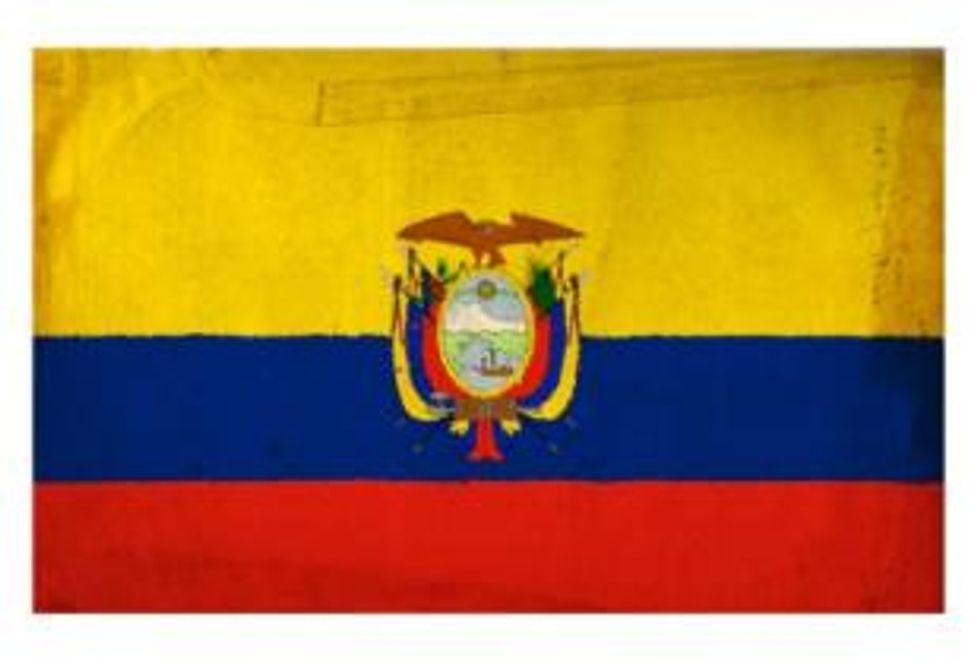Recent news of a coup attempt on Ecuador President Rafael Correa has raised many eyebrows about the stability of the Latin American country. While Ecuador has been vocal about raising taxes on natural resource companies, even threatening to take over and nationalize companies not willing to operate under the regulations, the wealth generated by these industries is keeping the country afloat.
By Michael Montgomery—Exclusive to Gold Investing News
Recent news of a coup attempt on Ecuador President Rafael Correa has raised many eyebrows about the stability of the Latin American country. The coup was undertaken by the national police, largely over austerity measures that would have cut the pay of the police force. Ecuador was severely hurt by the global economic downturn. In 2008, Correa allowed his country to default on over $3 billion of foreign debt, calling the debt “immoral.” President Correa, an ally of left leaning Latin American leaders such as Hugo Chavez of Venezuela, and Evo Morales of Bolivia, has remained a popular president despite the coup attempt because of his populist rhetoric.In 2008, Ecuador cancelled upwards of 600 mining licenses for various reasons including the stripping of natural resources from the country. The new constitution that was voted into law in 2008 is the first in the world to recognize “Right of Nature,” or ecosystem rights. The various articles of the new constitution state:
“Nature… where life is reproduced and exists, has the right to exist, persist, maintain and regenerate its vital cycles, structure, functions and its processes in evolution. Every person, people, community or nationality, will be able to demand the recognition of rights for nature before public institutions… In case of severe or permanent environmental impact, including that caused by the exploitation of non renewable natural resources, the State will establish the most efficient mechanisms for restoration, and will adopt adequate measures to eliminate or mitigate the harmful environmental consequences… persons, people, communities and nationalities will have the right to benefit from the environment and from natural wealth that will allow wellbeing,” reported Jennifer Koons, for Community Environmental Legal Defense Fund.
These articles of the Constitution show the determination on the part of Ecuador to not only protect the environment, but also to create societal well being from the natural resources contained in the country.
The Correa administration has had difficulties in balancing the environmental concerns of the indigenous, and the need to utilize natural resources to create economic growth. The Confederation of Indigenous Nationalities of Ecuador [CONAIE] had been a main supporter of Correa in the last two elections; however, “CONAIE has accused Mr. Correa of betraying them by approving a mining law that could see foreign companies open huge new mines on their ancestral territories,” according to a BBC News report. Oil accounts for 60 per cent of Ecuador’s exports, and the need to capitalize on this resource will supersede the plight of the indigenous groups. The nation produces about 470,000 barrels of crude per day.
The Correa administration has reviewed royalty and tax regulations for oil and mining operations since taking office. The newest tax the administration has proposed is “at least 85 percent of revenue under a new round of oil contracts to be negotiated with private petroleum companies,” stated Ecuador’s minister for oil policy Wilson Pastor. This new tax has met heavy opposition from oil companies. President Correa has take a hard-line stance saying that if any foreign companies do not want to operate under the new tax, the government will pay them for their investment, and ‘wish them well.’
It is this type of rhetoric that deters investor confidence in Ecuador. The fear of the government nationalizing natural resources is a real threat to consider in the region. However, Ecuador’s financial woes will probably keep them from it. It would be far too expensive to completely take over these industries, and risk loosing the tax revenue in the short term. The country simply can not afford it.
President Correa, who holds a PhD in Economics, most likely understands this fact. The policies that allow mining operations to proceed, while infuriating to the indigenous groups that supported him, are likely a reflection of the need to create revenue for the struggling country.
Some of the distrust of multinationals stems from a $27 billion lawsuit that has been in litigation for 17 years, against Chevron. The company allegedly dumped 18 billion gallons of oil sludge in the Ecuadorian Amazon, affecting over 30,000 people. When viewed with this situation in mind, the mistrust of oil and mining companies is understandable.
With world class gold, silver and copper deposits, Ecuador has a wealth of natural resources at their disposal. However, the political climate for multinational mining companies in the entire region is overwhelmingly negative. The indigenous groups that represent about 40 percent of the population call the mining model “extractivist,” where Ecuador would remain a primary exporter of natural resources and raw materials.
In 2009, the government finalized a new round of mining regulations. The law set a 5 percent royalty on sales, and boosted government control over the sector. “It is necessary to propel responsible mining. I will not back down on the mining law,” Correa said during his state of the state to the assembly. While Ecuador has been vocal about raising taxes on natural resource companies, even threatening to take over and nationalize companies not willing to operate under the regulations, the President knows that the wealth generated by these industries is keeping the country afloat.






